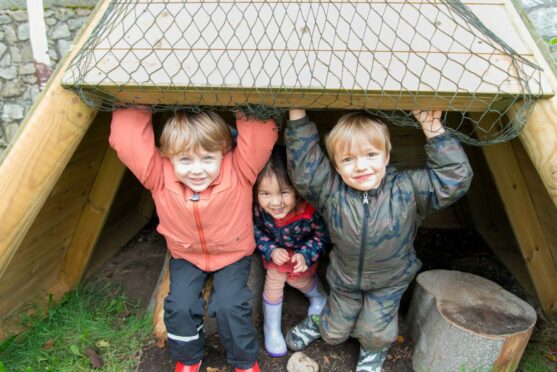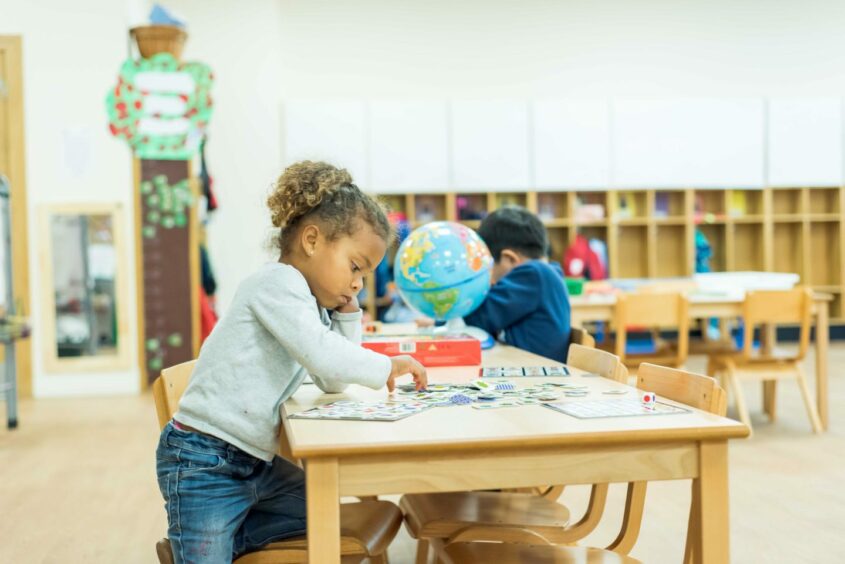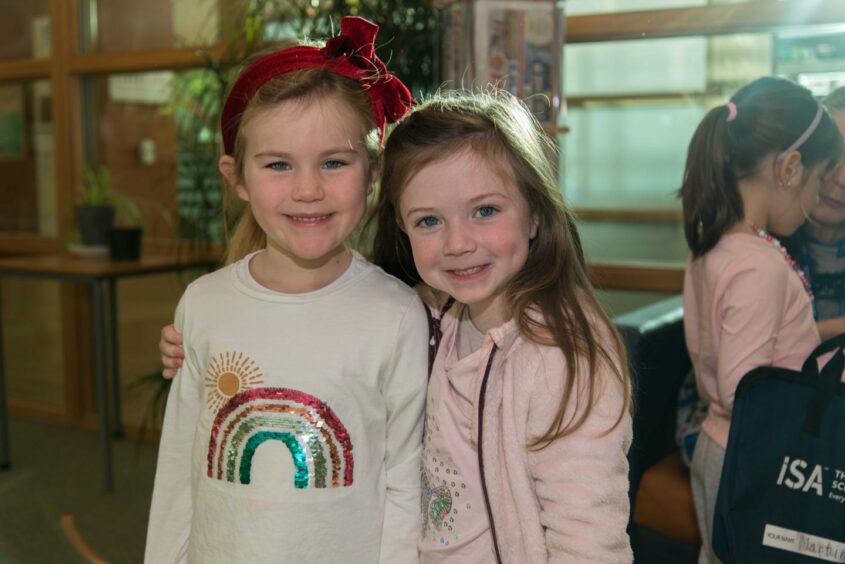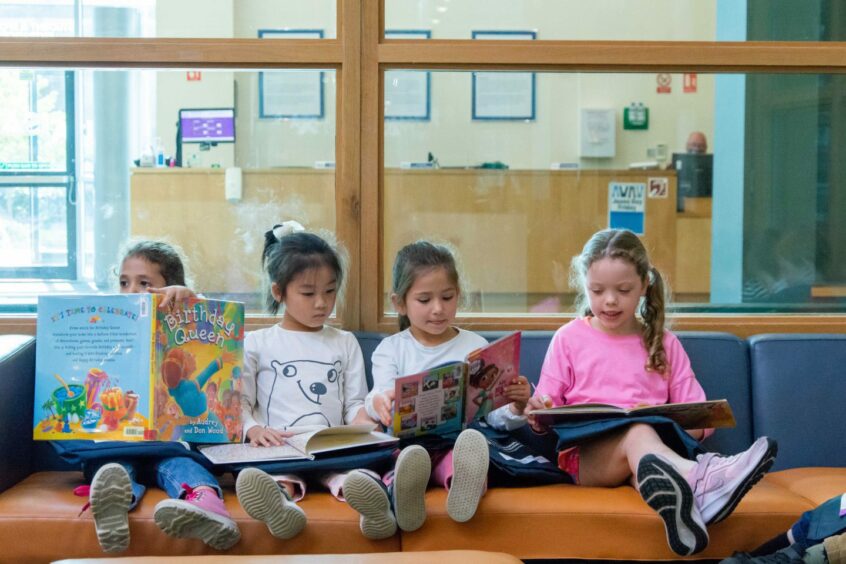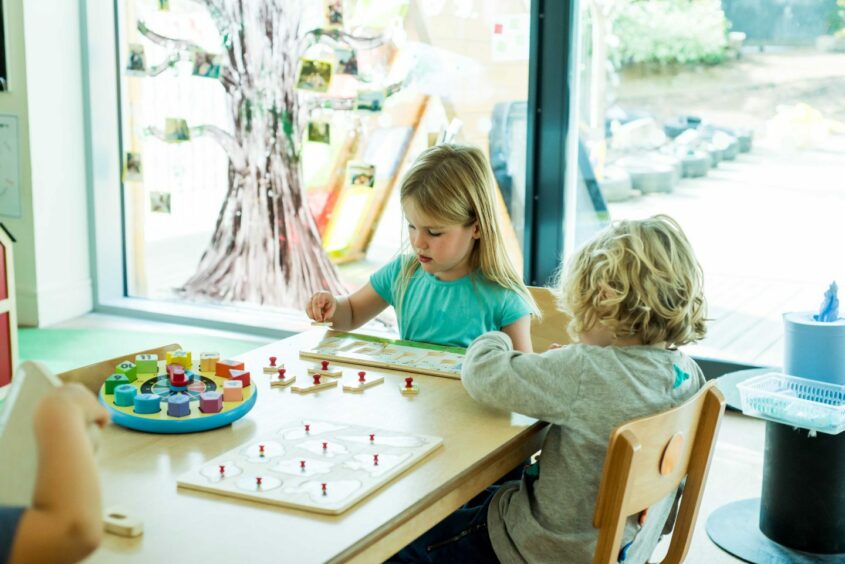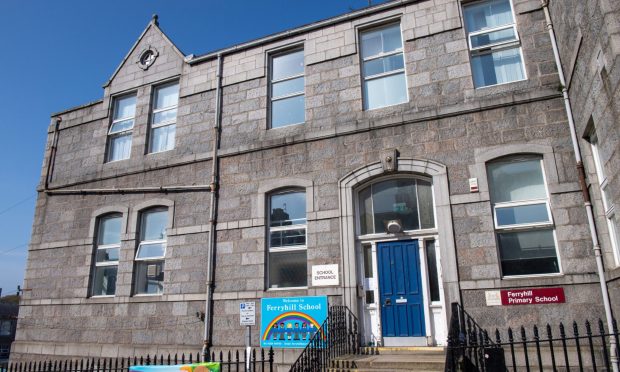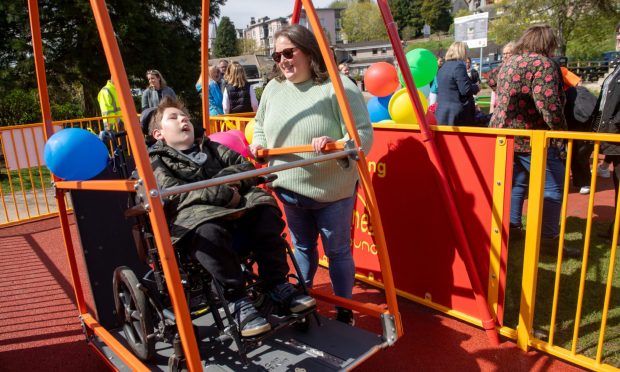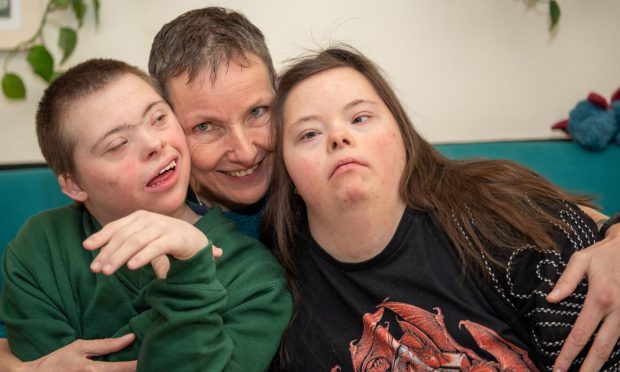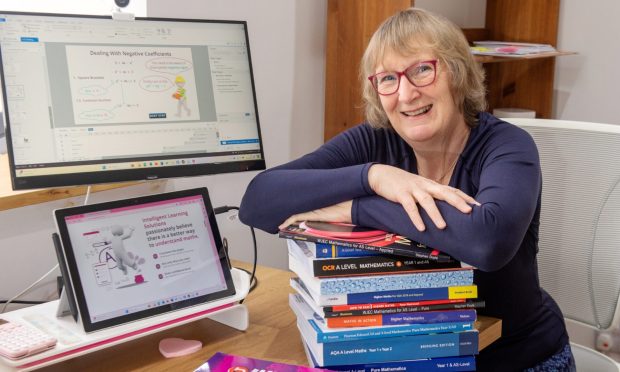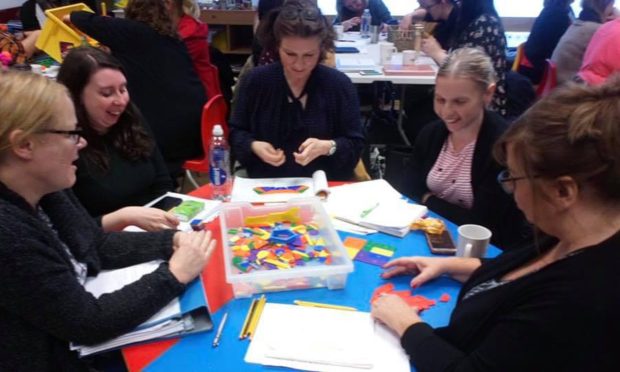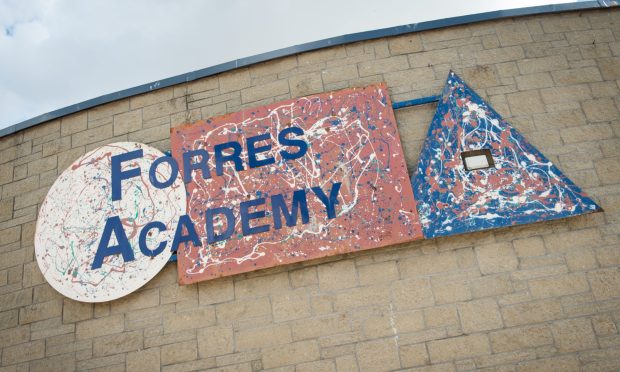Could learning through play help unlock your child’s creativity and curiosity? We chat to education experts about the main advantages of play-based learning.
-
Some Press and Journal online content is funded by outside parties. The revenue from this helps to sustain our independent news gathering. You will always know if you are reading paid-for material as it will be clearly labelled as “Partnership” on the site and on social media channels.
This can take two different forms.
“Presented by”
This means the content has been paid for and produced by the named advertiser.
“In partnership with”
This means the content has been paid for and approved by the named advertiser but written and edited by our own commercial content team.
We don’t all learn in the same way, so finding the right tools, tactics and approaches to help your child thrive at school and beyond is key.
One approach that’s worth exploring is play-based learning, where children are encouraged to start making sense of the world around them through play.
Nick Little is head of school at International School Aberdeen (ISA), where play-based learning is a key factor for early year students. Nick says: “Play is the work of children. By offering playful pathways for children from the age of three onwards, creativity and exploration are encouraged in a caring, supportive and stimulating environment.”
3 advantages of learning through play in early childhood
The supportive and stimulating environment created by play-based learning offers many different benefits to young students.
Three of the biggest advantages of learning through play include:
1. Establishing a lifelong love of learning
Play is a very powerful key that unlocks a love of learning for children from a very young age.
Nick explains: “The gradual transition between play-based activities and more formal approaches to education is essentially important in encouraging younger children to be inspired to learn and to immediately become learners for life.”
2. Developing social skills
Maybe they need to share a toy, communicate which building block they need to use next, or agree who is playing what part in a game; there are lots of ways in which play gently encourages the use of social skills. These skills are important for future success in school and beyond.
As well as social and emotional skills, play also helps develop the likes of motor and cognitive skills.
3. Room for creative expression and imagination
From choosing crayon colours to building worlds in a make-believe game, play-based learning encourages creativity, imagination and self-expression.
These are tools that will be useful later in their education journey.
The importance of early education for students
Thinking about play-based learning from the beginning of a child’s school journey is vital. After all, research shows that children’s education in their early years cements their passion for lifelong learning and shapes their entire lives.
As a steppingstone into an educational setting, the preschool years offer the foundations for important life skills such as teamwork and building friendships, as well as regulating emotions and understanding the emotions of others.
At ISA, the focus is on creating a flexible and fun early learning environment.
With a student population of around 550, ISA promotes a sense of belonging for every child, with wellbeing sitting at the very heart of the school’s approach. ISA students become multi-cultural, self-aware and open-minded – all crucial skills and aptitudes for the future.
Nick explains: “We consider the uniqueness of each of our students and how they are navigating their developmental milestones, as well as considering the parents’ own visions for their child’s education.”
ISA’s play-based learning sits alongside “outstanding” report
ISA staff engage children through methods like humour, storytelling and group activities, producing powerful results.
In fact, following a recent school-wide inspection by Education Scotland, ISA announced an “exceptionally positive” report in which the school is described as “outstanding”, demonstrating its pioneering approach to teaching and learning.
Highlights of the report include the “consistently very high standards of learning and teaching across the school”.
The school was judged on four standards, receiving two “excellent” scores (6 out of 6) which is “extremely rare” and only occurs in very few inspections. ISA were furthermore awarded two “very good” scores, meaning the inspectors had no recommendations for improvement.
The report abounds with positive statements of the school’s inclusive environment where every child is supported to thrive and succeed, an ethos that weaves seamlessly through elementary level to the upper school.
The creation of a supportive culture of nurture and achievement was also cited as examples of leading practice, with the “wellbeing of children and staff alike central to the work of the school”. The report states the children are “highly motivated to learn” and that “they contribute to improving their school in highly meaningful ways”.
Nick says: “ISA is a very special place; we have a wonderful staff and parent community, and our remarkable children and young people inspire us every day.
“We have a true passion to empower and support the next generation, not only with academic success, but with the power that compassion and respect for all holds.”
Visit ISA and discover its unique approach to early education in Scotland
Visiting ISA’s impressive 21st century campus is the best way to explore the school and all it has to offer your child.
The next Preschool Open Day is on Saturday August 19 at 10am.
If your child is beyond the early learning stages, there’s also a Doors Open Day on Saturday September 2, from 10am.
Find out more about results, open days and early education at ISA.
